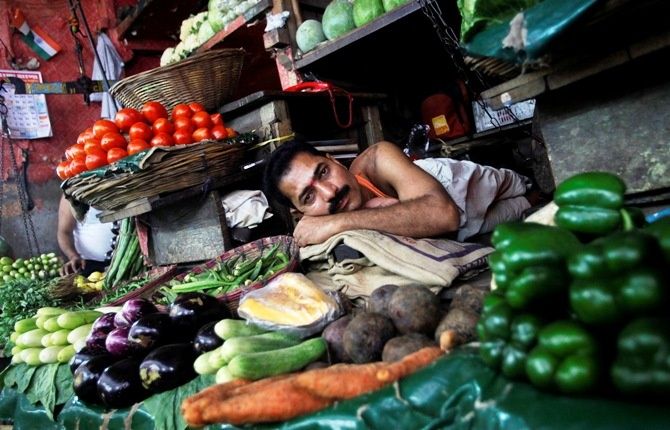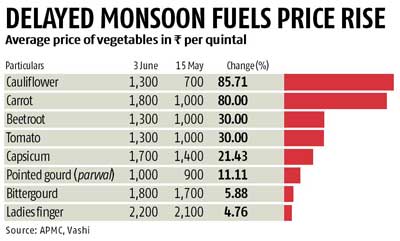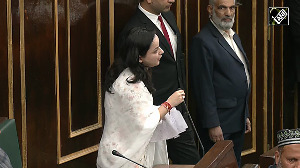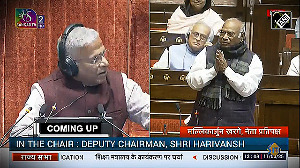During August-September, if sowing does not pick up vegetable prices might rise further to cover seasonal demand
 Intense heat and forecasts of deficient monsoon rain have kept vegetable prices elevated in the past two weeks.
Intense heat and forecasts of deficient monsoon rain have kept vegetable prices elevated in the past two weeks.
The price of carrot at the wholesale Agriculture Produce Market Committee market in Vashi, Navi Mumbai, is up 80 per cent since May 15, at Rs 1,800 a quintal. At Delhi's Azadpur mandi it was Rs 783 a qtl on Wednesday as against Rs 717 a qtl two weeks earlier.
“Vegetables are rainfall-sensitive. Timely onset of the monsoon enhances the possibility of a good one, as farmers start sowing. With heat waves and deficit rain, there is a possibility of lower yield even if the acreage remains the same.
 "So, vegetable prices might remain elevated,” said Jagdeep Grewal, vice-president (commodities and research), Kunvarji Commodities.
"So, vegetable prices might remain elevated,” said Jagdeep Grewal, vice-president (commodities and research), Kunvarji Commodities.
“Sowing of vegetable is not delayed as of now, with a marginal delay in monsoon rainfall. Farmers with own irrigation facility have started sowing.
"But, if the overall deficiency continues for a long period or rain distribution remains uneven, the problem would multiply,” said a senior official at the Vashi mandi. Pointed gourd ( parwal ) has become costlier by 10 per cent in the past two weeks, due to high spoilage and low arrivals in mandis.
“Over and above, export of vegetables like ladies finger, chilli and tomato have come to a standstill due to restrictions by importing countries. Once these export markets open, prices of vegetables would rise further,” said the APMC official.
Normally, a deficient rainfall season starts with heavy showers, followed by a dry spell.
"In such cases, the initial sprouting gets damaged and overall recovery is lower. “Lower monsoon rain would always affect yield, which keeps vegetables prices elevated.
"During August– September, vegetable prices might rise further if sowing does not pick up to cover seasonal demand,” said Sanjay Urade, a capsicum trader in Vashi.
Image: A vendor rests as he waits for customers at a vegetable market in Mumbai. Photograph: Vivek Prakash/Reuters












 © 2025
© 2025